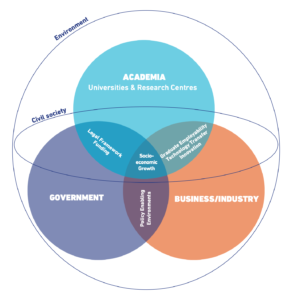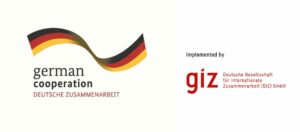Certificate Course: Linking academic research to industry
21 and 22 October 2021. Alliances and networking with higher education institutions and research centres have become critical success factors for industry to stay competitive. The interactions between knowledge centres and industry have moved beyond a one-way flow of knowledge from universities to industry in many parts of the world. Tunisian graduates, especially in scientific fields have increased dramatically, yet the industry still needs more confidence in the potential value added that these graduates can bring. This calls for re-examining the interaction between academia and industry with the support of policymakers to enact enabling conditions for productive research collaborations that can support academic requirements through degree programmes while strengthening industrial output. Tunisia, like many countries, currently faces challenges to move from a closed to open system of innovation – true collaboration can valorise higher educational research through growing innovation.
This action is part of a series of activities promoted by UfM and the pilot training “Linking academic research to industry” will focus on the national example of Tunisia with the cooperation of the Tunisian Ministry of Higher Education and Scientific Research (MESRS).
Dates
The training will have two live online class sessions to be held on:
● 21 October 2021 from 9:30 to 12:00 hrs UCT + 1 (Tunisia) /10:30-13:00 UCT + 2 (Spain)
● 22 October 2021 from 9:30 to 12:00 hrs UCT + 1 (Tunisia) / 10:30-13:00 UCT + 2 (Spain)
Working language
English/French/Arabic (with live interpretation in French/Arabic/English)
Participants
Senior and mid-career staff from universities, research centres, industry, ministries, business accelerators, and other organisations interested in deepening their knowledge about enhancing science-to-practice and practice-to-science partnerships.
Background information
This training is part of the UfM initiative to reinforce the innovation-employability nexus in the Mediterranean, targeting universities, research centres, policymakers, industry, and intermediary institutions to collaborate in addressing the unemployment of highly qualified graduates. It further supports UfM’s objective to establish a Community of Practice, bringing together experts and practitioners from public authorities, social partners, and civil society organisations, to discuss, assess and disseminate experience and good practices covering the priorities set forth by the Ministries centred around youth employment. This course is supported by GIZ on behalf of the Federal Ministry for Economic Cooperation and Development of Germany (BMZ).
This initiative contributes to the UfM Ministerial Declaration on Employment and Labour (2019) and the EuroMed Valletta Declaration on Research and Innovation (2017).
For questions, kindly refer to education@ufmsecretariat.org



